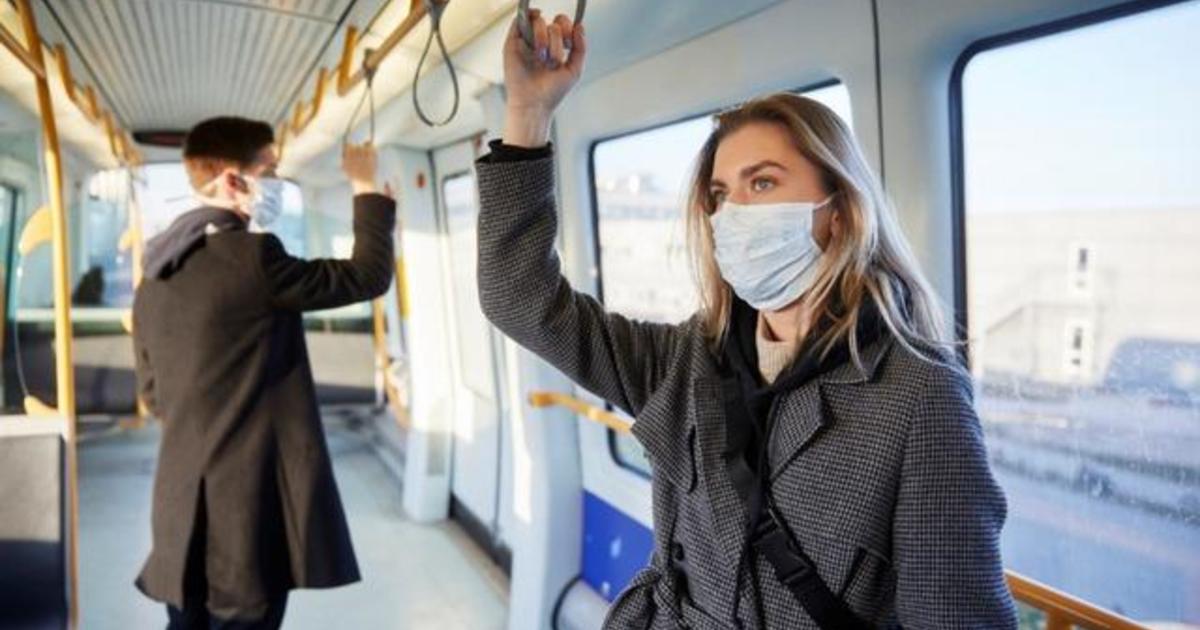
A cause of America's labor shortage: Millions with long COVID
As many as 30% of people with COVID develop the long-term illness, with many sufferers struggling to return to work.
A cause of America's labor shortage: Millions with long COVID
BY AIMEE PICCHI
FEBRUARY 1, 2022 / 7:41 AM / MONEYWATCH
One of the puzzles of the pandemic economy is the ongoing labor shortage, with business owners struggling to find workers amid the so-called "Great Resignation." But new research points to another — and more troubling — factor that helps explain the nation's shrinking workforce: long COVID.
Millions of Americans are struggling with long-term symptoms after contracting COVID-19, with many of them unable to work due to chronic health issues. Katie Bach, a nonresident senior fellow at the Brookings Institution, said she was "floored" when she started crunching the numbers on the ranks of workers who have stepped out of the job market due to long COVID.
Her analysis found that an equivalent of 1.6 million people are missing from the full-time workforce because of the disease, which can leave people incapacitated for months with persistent symptoms including fatigue, brain fog, headaches, memory loss and heart palpitations.
"It was so much bigger than I thought it would be," Bach told CBS MoneyWatch. "Then it was like, `Why is no one talking about this?'"
To put Bach's figure into perspective, the country's labor force remains 2.2 million people short of its pre-pandemic size — an issue that's causing headaches for many employers. Earlier in the crisis, some business owners blamed extra unemployment aid for keeping workers on the sidelines. But those benefits ended in September, and the labor force still hasn't fully rebounded.
Long COVID could keep millions of people from working or require them to cut back their hours, said Dr. Philip A. Chan, an associate professor of medicine at Brown University who works on its long Covid Initiative.
"It's a spectrum from very minor symptoms to severe that are debilitating and prevent them from working at all," Dr. Chan said. "It's not just 'Yes or no, can people work?' We are seeing people reduce hours, reduce the scope of what they work on."
Bach's research adds to the debate over America's current labor market shortage, as businesses continue to struggle to recruit and retain workers as the pandemic nears its two-year anniversary.
Employees are quitting their jobs at record rates, with some finding better-paying jobs and others starting their own businesses. But others are struggling with lingering health issues after catching COVID.
The findings also highlight what advocates for long-COVID patients have said they've been warning about since the early days of the pandemic, when it became clear that anywhere from 10% to 30% of people with COVID-19 continued to struggle with symptoms for months after their initial infection.
The impact is much wider than generally known, affecting the finances of long COVID sufferers as well as the broader economy, said Lisa McCorkell, researcher at the Patient-Led Research Collaborative, a group created by long COVID sufferers who were among the first to do research on the condition.
"This is really a massive issue for workers," McCorkell said. "What we saw in our patient-led research collaborative study is that about two-thirds of survey respondents had to reduce hours or stop working completely."
She added, "A conservative estimate of cases of long COVID is almost 19 million — and any percentage of those being unable to work will have significant impacts on the economy."
"How am I going to support myself?"
One of those workers struggling with long COVID is Charlie McCone, a 32-year-old who is on short-term disability after developing the chronic illness following a COVID-19 infection in March of 2020. McCone said his long COVID symptoms were finally starting to improve in 2021, but he then contracted COVID-19 a second time.
"Now my symptoms of fatigue and cognitive issues have gotten so much worse, and they are so much more disabling when you need to work," McCone said. "You can work through pain if you have to, but you can't work through having zero energy. I feel like I'm a cellphone battery that is constantly dying."
McCone, who lives in San Francisco, said he's able to get by on his short-term disability payments, which replaced about two-thirds of his income, although he's had to dip into savings, partly to cover medical costs for his long COVID-19 treatments. But his disability runs out in March, and McCone worries that he won't be well enough by then to return to his marketing job.
"This instills a deep terror, like when you can't get out of bed. It's like, 'How am I going to support myself?'" McCone said. "My recovery has been so slow, and it's very debilitating. I might be able to do one to two hours [of work] a week right now."
Charlie McCone, 32, in his antigravity chair that he uses for rest. He is on short-term disability after developing debilitating symptoms following a COVID-19 infection in March of 2020. "I feel like I'm a cellphone battery that is constantly dying," McCone said.
McCone said long-haulers face a lot of uncertainty, given there's no prognosis on recovery time or approved treatment for the disease, which means sufferers have no idea how long it could take for them to heal or what medical treatments could help. Some people have turned to expensive treatments that can cost thousands of dollars in out-of-pocket expenses, he noted.
From his perspective as a long COVID sufferer who was struggling to get through the workday before going on disability, McCone expressed frustration that the risks of ending up with a chronic illness is not more widely discussed.
"This is the most infuriating thing to people with long COVID," he told CBS MoneyWatch. "I had a mild infection, and I'm still sick two years later."
He added, "People should be scared, but they also need to be informed."
Researchers say they're looking into how to better diagnose and treat long COVID. But much remains unknown, adding to the anxiety felt by patients.
"One of the big questions we have to see is how long that will last and how long people have these persistent symptoms," said Dr. Chan of Brown University. "We are only two years in this pandemic, and it seems like forever sometimes."
How widespread is long COVID?
Given the surge in Omicron variant infections, the number of people dealing with long COVID is likely to rise, experts say. There's some research indicating that vaccinations can help prevent cases of long COVID, but other studies suggest that some vaccinated people still develop the chronic condition even after getting the jab.
Long COVID sufferers can face challenges in receiving accommodations in the workplace, or may not be believed when they say they are struggling with symptoms since it can be an "invisible" illness, noted Natalie Lambert, an associate professor of medicine at the Indiana University School of Medicine who studies COVID-19.
"The phrase, 'You don't look sick' is the most common thing people report that people say to them," Lambert noted. "It's a dark side of American culture that we don't believe people unless they look sick."
Many long COVID sufferers are continuing to work despite their daily struggle to function, she said. "People in employment are doing the best to keep up work performance and hide the fact that they have an invisible illness so they don't get fired," Lambert said.
But there are challenges in getting employers, insurers and others to acknowledge that someone has long COVID. For one, there's no clinical definition of long COVID, Lambert said. And patients can struggle to apply for disability if their doctor doesn't diagnose the illness or fails to enter the appropriate medical codes in their records.
As a result, long COVID entails many unknowns, including exactly how many people are actually impacted by long-standing chronic illness. About 1 in 3 COVID patients have long-haul symptoms after getting COVID-19, even if their initial infection was mild, according to researchers from University of California at Davis.
About 100 million Americans ages 18 to 65 have gotten COVID-19 since the pandemic began, according to the U.S. Centers for Disease Control and Prevention. Using the UC Davis figure, that means about 30 million people may have developed long COVID since the pandemic began, with many of them recovering enough to resume work.
Based on her research on how many long COVID patients stop working or scale back their hours, Bach estimated that about 1.1 million workers have dropped out of full-time work due to long COVID at any given time, while about 2.1 million may have cut their hours due to their symptoms. All together, that equates to about 1.6 million full-time workers who are missing from the economy, according to Bach.
Bach said more research is needed on long COVID, and she questions why the illness isn't more front and center in discussions about the economy and public health.
"I don't believe we will take steps to deal with this crisis until we understand the full economic burden," Bach said. "Understanding the economic burden of long COVID is what is most likely to move the needle in getting people to take this seriously."


 )
)

 Me too…. Something is not right…
Me too…. Something is not right…